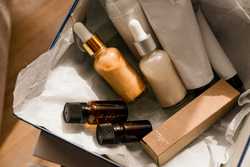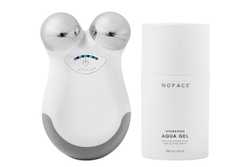- Key ingredients: Colloidal oatmeal 1%, licorice root extract, Ceramide-3
- Price: $12.97
- Size: 8 oz.
The Best Creams for Eczema: 15 Moisturizers That’ll Stop the Itch
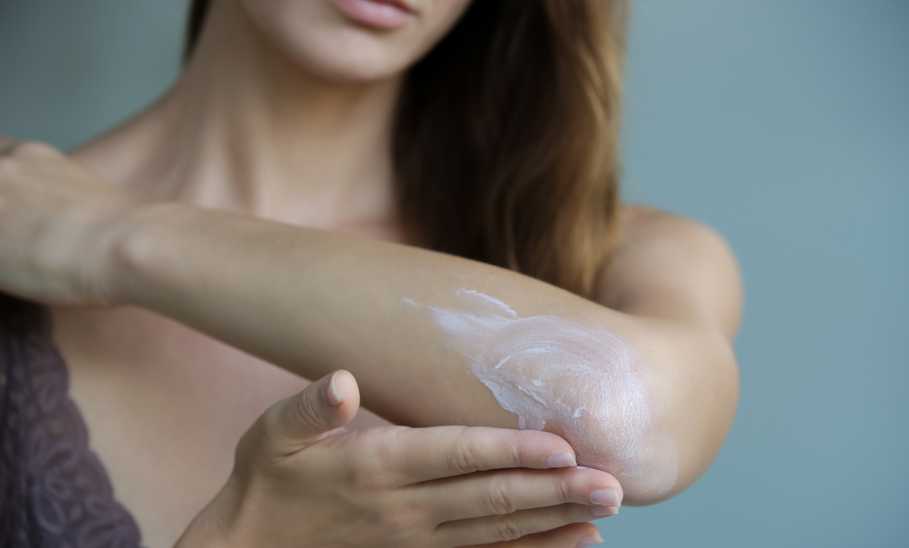
Our evaluations and opinions are not influenced by our advertising relationships, but we may earn a commission from our partners’ links. This content is created by TIME Stamped, under TIME’s direction and produced in accordance with TIME’s editorial guidelines and overseen by TIME’s editorial staff. Learn more about it.
Itching. Redness. Rashes. Burning. The effects of an eczema flare-up can range from uncomfortable to all-consuming. (Plus, conventional night creams, serums, and even sunscreens could be a trigger if you suffer from eczema.) And while there’s no permanent cure for the inflammatory skin condition, also known as atopic dermatitis, relief can be found in the form of creams and lotion that temporarily soothe the skin and reduce the symptoms that have you scratching your head—and every inch of affected skin—for solutions.

Having a chronic skin condition isn’t just bothersome—it can be expensive, too. Affordable skincare options that actually work really do exist, and this body cream from Eucerin is one of the best in its class. It contains colloidal oatmeal to protect and soothe the skin, Ceramide-3 to lock in moisture and licorice root extract to help ease inflammation.

When it comes to high-end skincare, fan favorite Augustinus Bader is hard to beat. The luxury brand’s The Body Cream delivers relief from angry, irritated skin in the form of a thick, remarkably hydrating cream made with Bader’s patented TFC8® skincare technology to support skin renewal. It contains highly moisturizing shea butter, bisabolol (a calming, skin-soothing ingredient), natural amino acids, and vitamins to help restore the skin barrier.

The best way to prevent itchy skin is to stop it before it starts, and the best way to do this is to keep skin as hydrated as humanly possible. Curel’s Hydra Therapy lotion is designed to be applied to wet skin—post-shower, before drying off — in order to deeply penetrate the skin and lock in moisture. This will help repair the skin’s natural barrier while keeping dryness and irritation at bay.
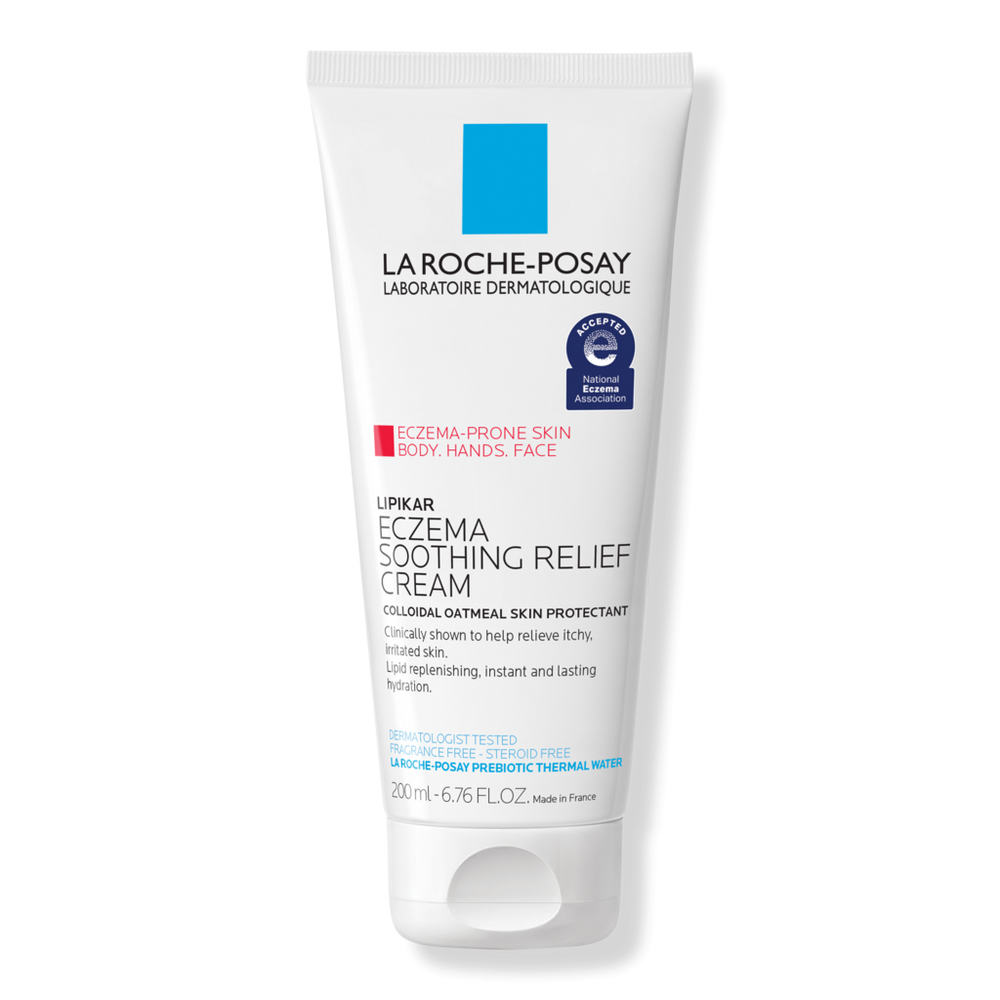
You’d think any product marketed as eczema relief would be safe for sensitive skin — an angry, inflamed rash seems pretty darn sensitive — but some creams contain irritants that can actually make things worse. La Roche-Posay’s soothing cream is designed specifically for sensitive skin and is packed with shea butter and glycerin to help replenish skin lipids.
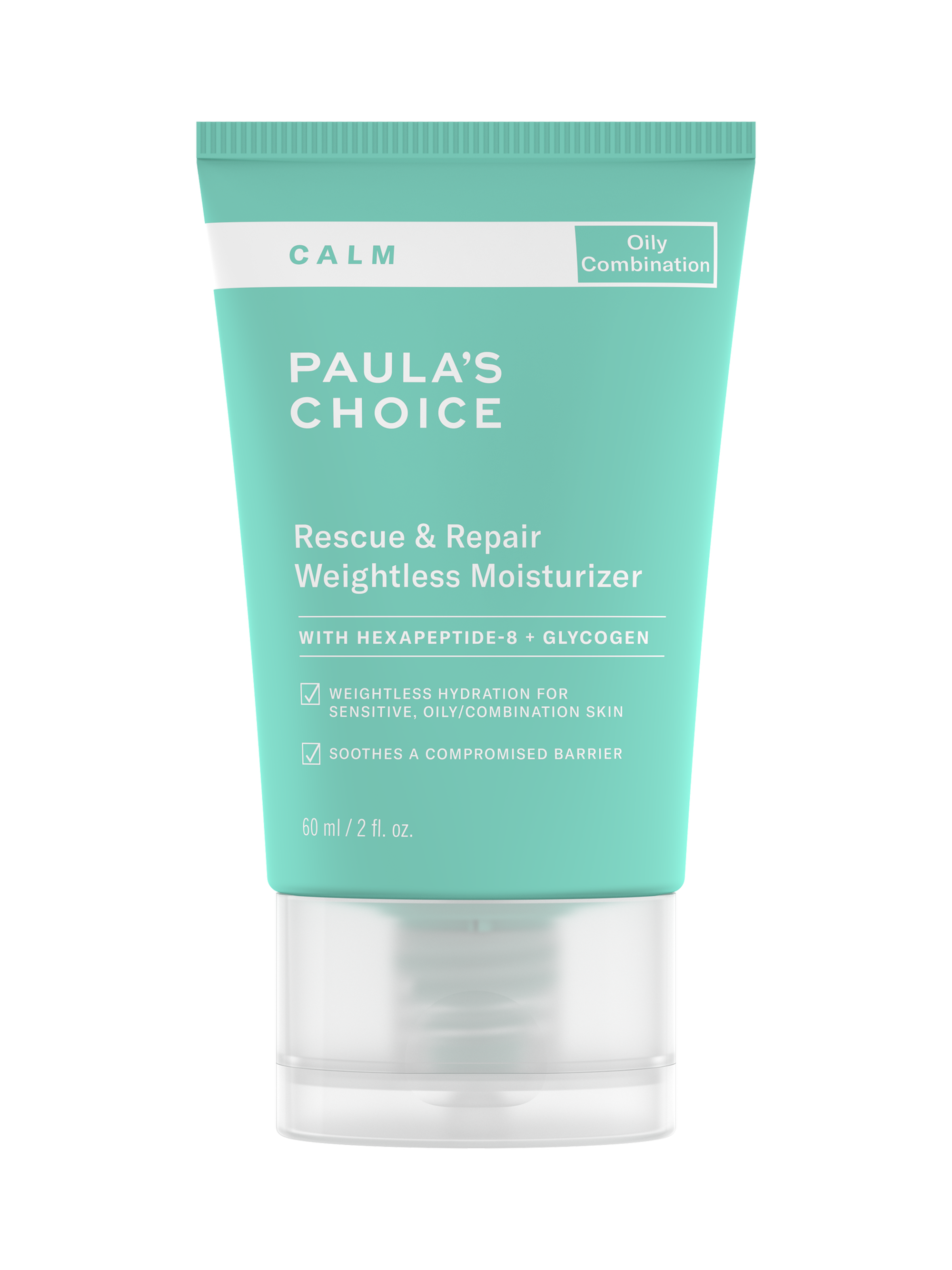
What’s worse than dealing with an eczema flare-up? Dealing with an eczema flare-up, clogged pores AND acne all at the same time. Most eczema products cater to dry skin, so treating the condition when you’re on the oilier side can feel like a balancing act. This Paula’s Choice moisturizer is lightweight but soothing, with a focus on repairing the skin’s barrier.

Anyone who’s experienced eczema at its worst knows the burning sensation accompanying the merciless itching is absolutely unbearable—and you’d just about tear off your skin suit to make it stop. Luckily, there’s a much better solution in the form of CeraVe’s Itch Relief moisturizer, which works quickly to stop the itching and burning in a (gentle, calm) flash.
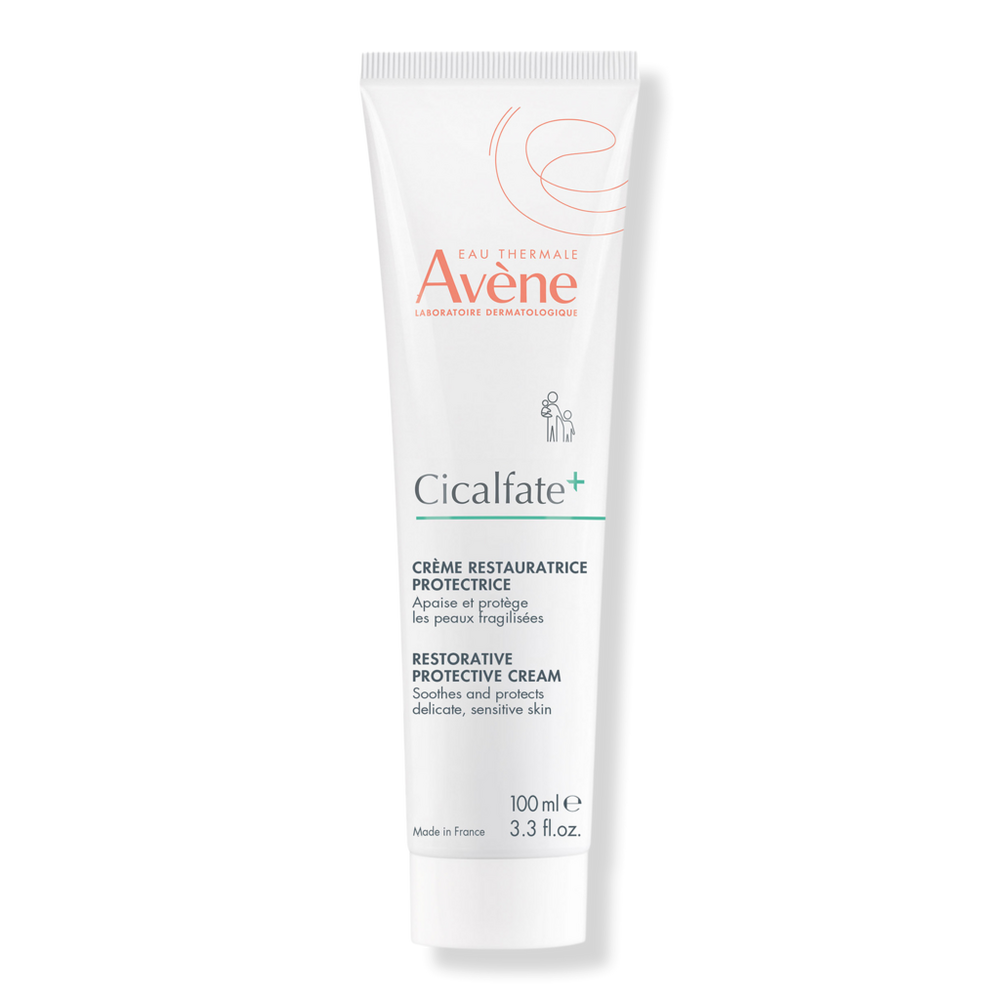
Similar to eczema, psoriasis is a chronic skin condition resulting in painful, itchy rashes and thick, scaly patches of skin. Avène’s powerfully nourishing postbiotic cream has been clinically proven to speed up skin recovery and help maintain a healthy, balanced microbiome so even the most reactive skin can thrive.

For chronic eczema sufferers, preventing flare-ups is always—unfortunately—top of mind. This daily moisturizer with colloidal oatmeal and ceramide will help soothe irritation and take the guesswork out of eczema relief by keeping the skin barrier moisturized and replenished. All you need to do is remember to apply it.

Dry skin is eczema’s best friend—and your worst nightmare—so hydration is crucial when it comes to treating the problem. This Skinfix body cream is soothing and incredibly moisturizing; slather it on morning and night to give redness and irritation the boot.

Spending a fortune on eczema cream in this economy? It’s not for everyone, which is why we appreciate affordable eczema relief from a tried and true drugstore brand. This new offering from Vaseline contains colloidal oatmeal to soothe the skin, but skips fragrance and allergens so it’s suitable for sensitive types.

Both fast-acting and long-lasting, this rich moisturizer from First Aid Beauty delivers intense hydration and relief from irritation, redness and itching caused by eczema. You can use it from head to toe, which is handy if you like a streamlined skincare routine.
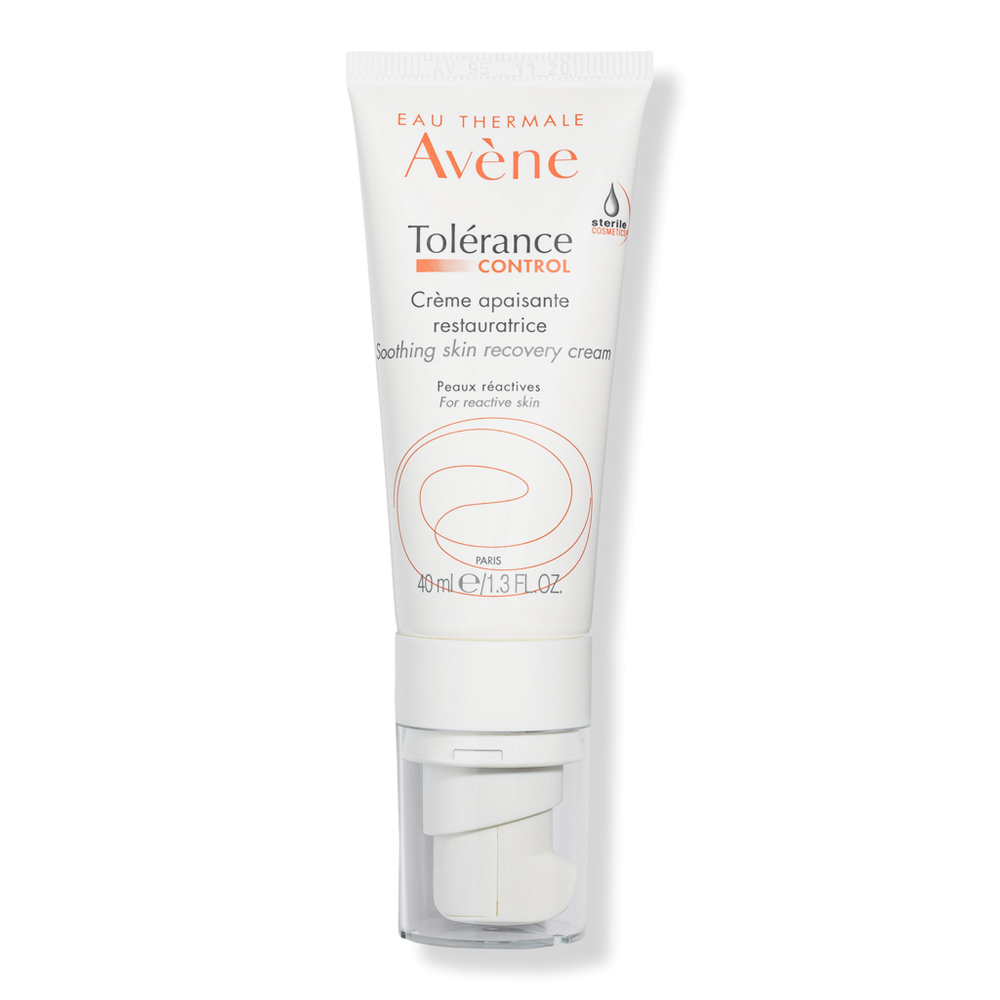
Renowned for its groundbreaking advances in treating reactive, hypersensitive skin, French skincare company Avène continues to come out with some of the very best products to soothe pain and inflammation caused by eczema. This cream promises to calm skin in just 30 seconds—and if you’ve ever felt that painfully hot, itchy, burning sensation that goes hand in hand with eczema, you’ll know that every second counts.
Thick balms are a nighttime eczema-care staple, but daytime relief requires a lighter, less goopy approach. This colloidal oatmeal treatment from Murad sinks into the skin so quickly, you’ll almost forget you applied it—but the noticeable relief from itching and irritation will remind you.

When the eczema-induced itching has you clawing frantically at your own skin—which just makes the redness and burning worse—a hydrocortisone cream may be your best course of action for fast, soothing relief. This one combines 1% hydrocortisone (a mild, topical steroid reducing inflammation) with colloidal oatmeal to reduce itching and help restore the skin’s natural moisture barrier.

Not just for babies, this rich, thick balm may provide hours of relief from itching caused by eczema. Hypoallergenic and gentle enough for daily use on the most sensitive skin, this balm is formulated with colloidal oatmeal and ceramide to help prevent extreme skin dryness caused by eczema. “It’s amazing for newborn babies, toddlers, kids and adults alike,” says dermatologist Dr. Laura Scott, an LA- and San Diego-based dermatologist. “[It’s] one of my favorites that checks all of my boxes.”
With such a huge selection of eczema creams on the market, choosing the one that’s right for you can feel overwhelming. Before committing to one—or panic-buying six different creams—here’s what you should know.
Look for emollients like ceramides and hyaluronic acid to boost your skin's moisture barrier. Creams with colloidal oatmeal can provide much-needed relief for irritated skin.
Skip any creams that contain synthetic fragrances or essential oils, since they can trigger flare-ups in sensitive skin. Opt for hypoallergenic options to minimize the risk of adverse reactions.
Creams tend to be richer and more hydrating than lotions, so take that into account when shopping for an eczema cream.
To find the very best creams for treating eczema, we kicked things off with a deep dive into the most effective skin-soothing ingredients on the market. We consulted with dermatologist Dr. Laura Scott to gain a deeper understanding of eczema, including its causes, triggers and treatment options. When selecting eczema creams, we factored in key ingredients, customer reviews and price points as well as our own personal experiences with itchy, irritated, eczema-prone skin.
“Eczema is a chronic skin condition characterized by dry, itchy, and inflamed skin,” says Dr. Laura Scott. “We often call it ‘the itch that rashes’ because it starts with itching due to an impaired skin barrier, and the rash follows after scratching.”
“The exact cause of eczema is unknown, but it's a combination of genetic factors that cause immune dysregulation and skin barrier impairment, and environmental exposures that can trigger it,” says Dr. Scott. Annoyingly, if you’re prone to eczema, you’ll probably deal with recurring flare-ups caused by changes in the weather, stress or skincare products.
“While there's no guaranteed way to prevent flare-ups, there are definitely things that can help reduce the chances,” advises Dr. Scott. “These include keeping the skin moisturized with a soothing cream or balm, and avoiding triggers like fragrances, harsh detergents, certain fabrics, and secondhand smoke.” This should probably go without saying, but if you suffer from eczema and you’re a smoker, consider this your incentive to quit.
“Always make sure to apply eczema cream or balm to damp skin,” says Dr. Scott. “This way there is moisture for the cream to seal in.” Post-shower, towel off gently by patting yourself down instead of rubbing vigorously, so you don’t further irritate any affected skin, then apply a generous amount of lotion all over the body. Let it absorb before you get dressed (this is a good excuse to wrap yourself in a towel, sit on your bed and stare into space for five minutes to an hour each morning).
“A good eczema cream works in a few different ways,” says Dr. Scott. “First, it should act as an additional barrier between the skin and the environment—since the actual skin barrier is impaired in eczema—helping to prevent moisture loss. Ideally it will also have soothing ingredients that help to calm inflammation and itching, so that you get a combination of sealing in moisture, sealing out irritants, and calming inflammation to help reduce itching.”
“Honestly, one of the easiest things to look for is the National Eczema Association Seal of Approval—they essentially have done all the hard work for you,” says Dr. Scott. “A good cream or balm will have humectants, emollients, and occlusives like glycerin, ceramides, and dimethicone, for example, as well as an anti-inflammatory ingredient like colloidal oatmeal.”
What’s excluded from an eczema cream is just as important as what’s in it, according to Dr. Scott. “It should not have fragrances, dyes or too many fruit extracts, or other potential allergens,” she says. The last thing you want to do is further irritate your eczema-prone skin.
When it comes to application and re-application, let your skin guide you. “It really depends on [the condition of your skin] at the time and your other habits like how frequently you bathe, but I recommend using at least once daily,” says Dr. Scott. “For severe eczema, it is often two to three times daily.”
Restoring the skin’s barrier is crucial to alleviating the symptoms of eczema. Keep the skin hydrated with creams that contain soothing, calming ingredients, and avoid irritants like fragrance, dye, and parabens.
“We know that people who have eczema do have a higher rate of having food allergies, but not everyone will,” says Dr. Scott. “In general, I recommend limiting foods that are pro-inflammatory, like high sugars, super processed foods, and some forms of dairy.” What should you be eating instead? “Anti-inflammatory foods like fatty fish, avocado, leafy greens, and berries are great to include in your diet,” she says.
While there is evidence that people who have eczema tend to have a higher rate of food allergies, there is no evidence that removing specific foods from one’s diet can reduce eczema, according to the American Academy of Dermatology Association.
“While some people with eczema may find that sun exposure can help, others may find that it triggers a flare-up,” says Dr. Scott. If you choose to spend time in the sun, remember to do it safely. “It's always important to use a broad-spectrum sunscreen — ideally mineral based if you have eczema—and [wear a] hat and protective clothing.”
The information presented here is created by TIME Stamped and overseen by TIME editorial staff. To learn more, see our About Us page.


